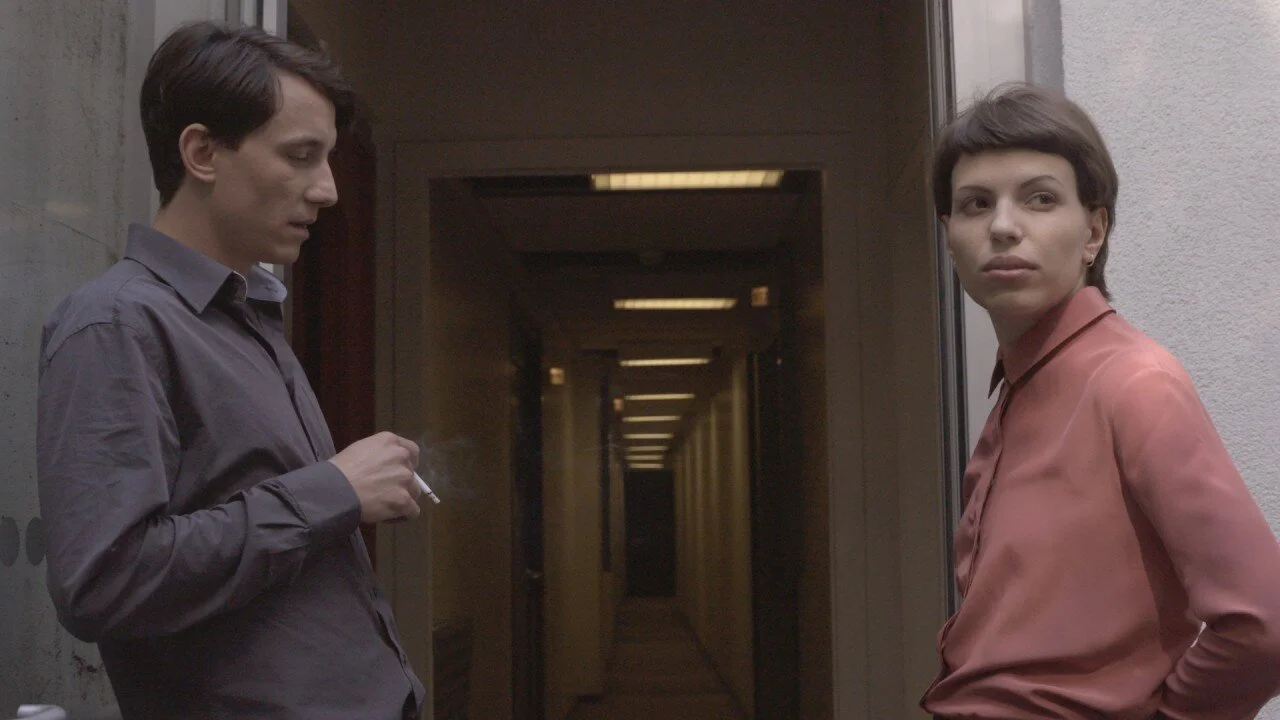The Dreamed Ones
A strikingly original approach to portraying a remarkable real-life love story.
The relationship between the poets Ingeborg Bachmann and Paul Celan was an extraordinary one which has now become the subject matter of this remarkable film. The Austrian director Ruth Beckermann in choosing to bring their story to the screen has found a wholly novel approach. These two met in Vienna in 1948 when Ingeborg was 21 and Paul at 27 was already an established poet. They would keep up a correspondence until 1970 when Paul died and it is this which now provides the basis of Beckermann's film. Their letters reveal the most intense and lasting connection, yet it was a troubled relationship marked by the fact that they only met once after that first amorous encounter. Nevertheless, it is easy to believe that Ingeborg's love for Paul was stronger and more significant than her feelings for the man she took as a lover in 1958, the playwright Max Frisch.
Stage works exist in which actors read letters that passed between celebrities (a case in point is Dear Liar featuring the correspondence of George Bernard Shaw and the actress Mrs Patrick Campbell). It is altogether rarer to adapt this concept to the screen but here we see Anja Plaschg and Laurence Rupp recording the letters of Bachmann and Celan. The format adopted by Beckermann extends to showing breaks in the recording schedule. These, scripted or not, give us a glimpse of Plaschg and Rupp as themselves while also enabling them to comment on their feelings about the letters, not least about the surviving ones by Ingeborg that were written but never posted. These scenes give us a breathing space from the readings which, rendered in varying degrees of close-up, achieve an intensity that makes it less surprising when we witness an emotional reaction from Plaschg as she records some of Ingeborg's letters. Furthermore, the method of presentation underlines throughout that we are privy to two views of the world, one male and one female.
At times the letters became consciously poetical but they always feel revelatory of the complex inner world shared by these two. That does not mean that we get the whole picture since, apart from written statements which bookend the film, we are inside the letters. They reveal Celan's fears of anti-semitism having lost his parents in the Holocaust, but we can't know to what extent Ingeborg's father having been a Nazi impacted on their relationship and her own illnesses and insecurities are not fully clarified (she refers to loving Paul but resisting him too). Yet, if we are sometimes left pondering, there is no doubt that in its intellectual way this film delves deep into a love which with all its psychological complexity cannot help but fascinate us.
MANSEL STIMPSON
Featuring Anja Plaschig and Laurence Rupp.
Dir Ruth Beckermann, Pro Ruth Beckermann, Screenplay Ruth Beckermann and Ina Hartwig, Ph Johannes Hammel, Ed Dieter Pichler.
Österreichisches Filminstitut/ORF Film/Fernseh-Abkommen/Filmstandorf Austria-Contemporary Films.
89 mins. Austria. 2016. Rel: 2 December 2016. Cert. PG.


